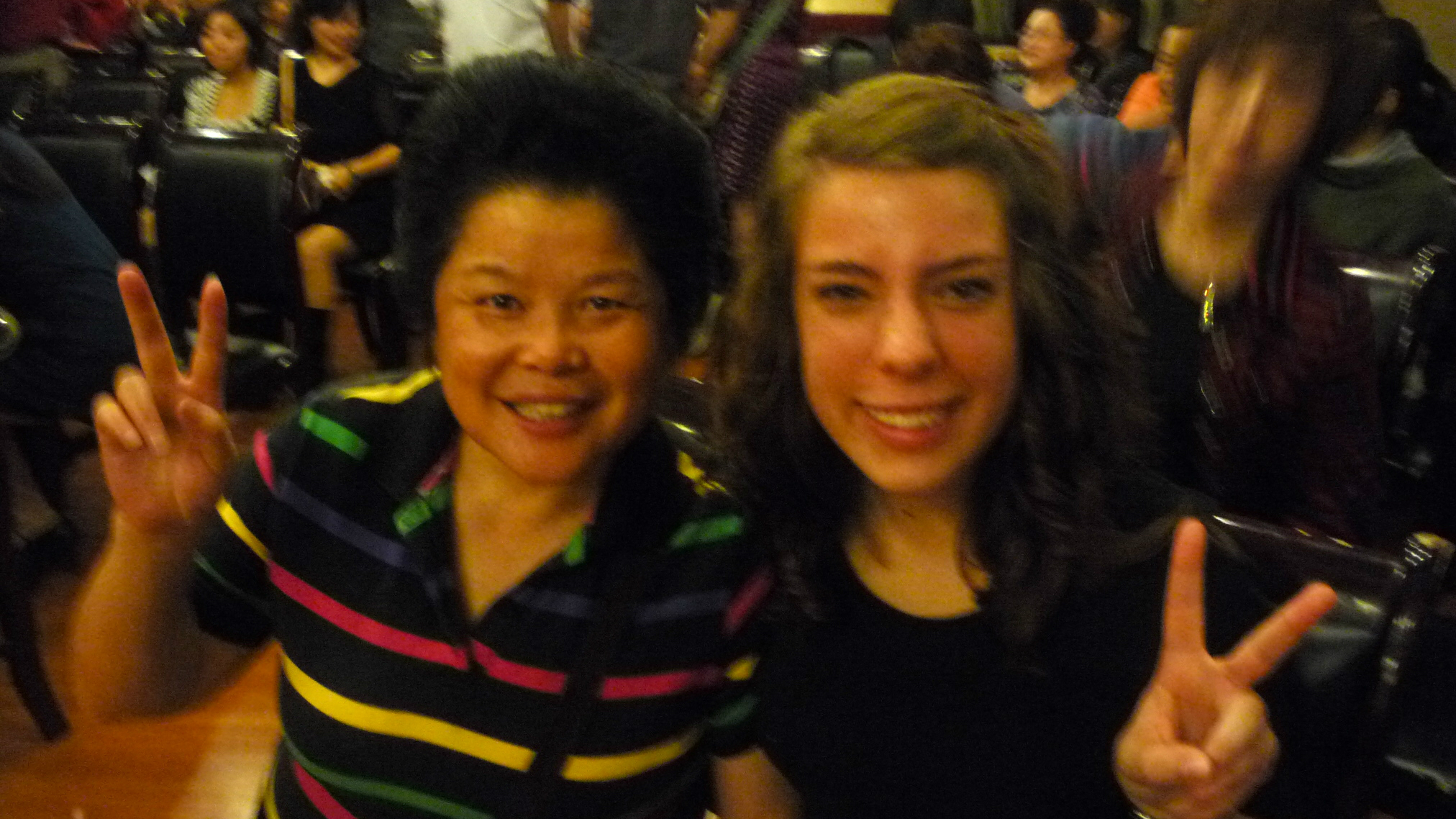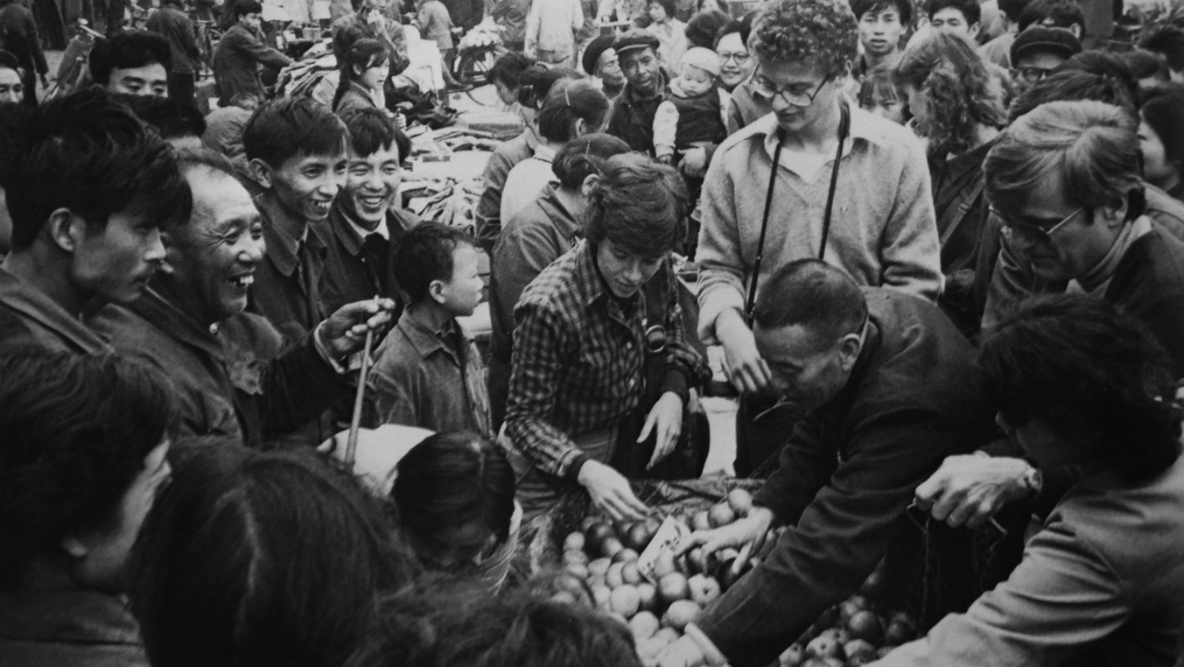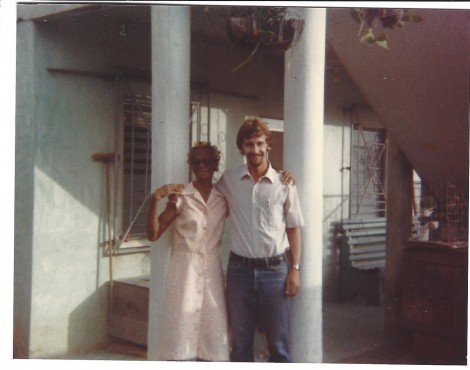Ma Ma and Ba Ba Wang were an older retired couple — he an ex-military officer, she a rotund local tennis star. I lived in their apartment in Nanchong, China with their dog, Er Wa, and a turtle that mysteriously disappeared after a few weeks. Neither parent spoke a word of English, but their bubbly personalities, the deep bowls of noodles ready each evening, and their strange daily routine of stripping down to their underwear after a long day out on the town — it all became my world for a few months, so dear to me over time.
The Wangs were an odd duo, as many fellow SST friends would attest to after spending an evening with them. They were always eager to teach me everything there was to know, despite the language barrier. They’d tell me where to place my hands when I slept, scolded me for having a pimple on my face, and instructed me on how to correctly sit at the table. What seemed overwhelming at first, I understood later as a way of trying to shelter me, they just wanted me to feel at home with them. They were goofy, and made me feel goofy. We soon made one happy family.

“Ai Maaaaaa! Chi fan le!” (Emma, time to eat.)
That’s my 15-second warning. I swiftly toss the bedding back, grab my book from the nightstand, and swing my legs across the bed, propping myself up to create the illusion that I was already awake. Fifteen seconds later, I hear a pound on the door. A round head peeks through the crack.
“Ai Ma, chi fan le.”
“Hao, xie xie.” (Good, thank you.)
My words are only slightly audible — which is strategic. While I don’t want to ignore her, my Chinese is still too limited to construct complete sentences. She is gone already, anyway. The breeze from the window nudges me out of bed. I hear someone hock and spit down below. I stare at the wall for another minute before realizing she won’t leave for her tennis game until she sees me eat, so I stand and open my bedroom door. The dog goes crazy because — good god! — a door in the house opened, so he must growl as loudly as possible.
Ma Ma emerges from the kitchen sporting a blue and white sweat suit and a head full of gel.
“Chi. Chi.” (Eat, eat)
Without missing a beat, she ushers me to the table spread with an array of bowls, plates, and a single set of chopsticks.
I look up at her towering over me. She looks smug. I know what’s coming. She knows I know.
“Nui rou.” (Beef)
She points at one dish and looks at me with an eager expression. I know I’m to repeat her. A daily food-naming ritual.
“Nui rou,” I repeat.
“Dui!” (Yes!) “Nui rou.”
She picks up the next dish.
“Shu cai.” (Vegetables)
Her eyes are wide, as if the shu cai is some sort of ancient treasure.
“Shu cai.”
“Dui. Nui rou, shu cai.”
I beat her to the next one.
“Ji dan,” I say, pointing to the egg.
Her face lights up. “Dui, dui! Ji dan.”
“Bao zi, jao zi, man tou.” (Steamed buns, steamed dumplings.)
This is way too much food, I think. I repeat: “Bao zi. Jiao zi. Man tou.”
She claps and pushes me down into the chair, reaches for the chopsticks, and does a demonstration of what I’m supposed to do: eat the food.
The floorboards squeak as she leaves the kitchen and I turn toward my mound of breakfast.
Seconds later, she scurries back in, her purse strapped to her round tummy, carrying her tennis racket on her back. She motions for me to follow her, and leads me to the front door of our apartment where she performs her daily demonstration of how to close the latch. As usual, I respond with sounds that indicate that I understand.
“Hao, hao. Xie xie.” I thank her for the instruction, the breakfast, the clean towel she hands me. (Good, good. Thank you)
“Ai Ma,” She turns to me as she opens the door for herself. “Wo jiao shenme mingzi?” (Emma, what is my name?)
“Ma Ma,” I tell her with a smile.
“Dui! Dui!” She pokes her chest with a finger with pride. “Ma Ma.”
I can hear her raspy singing all the way down the seven flights of stairs and out into the street. The dog looks at me and growls.
Emma Ruth graduated from Goshen College in 2014 with a degree in sociology and a minor in economics. Her SST was to Nanchong, China in fall of 2011. She now works for a medical device manufacturer selling and providing support for dialysis and interventional radiology products to hospitals in the Asia Pacific region. Someday, she hope her travels will bring her back to Nanchong.




